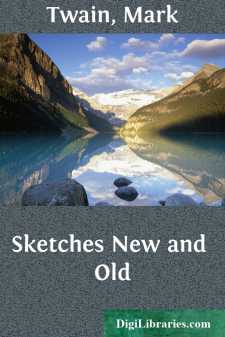Categories
- Antiques & Collectibles 13
- Architecture 36
- Art 48
- Bibles 22
- Biography & Autobiography 813
- Body, Mind & Spirit 142
- Business & Economics 28
- Children's Books 17
- Children's Fiction 14
- Computers 4
- Cooking 94
- Crafts & Hobbies 4
- Drama 346
- Education 46
- Family & Relationships 57
- Fiction 11829
- Games 19
- Gardening 17
- Health & Fitness 34
- History 1377
- House & Home 1
- Humor 147
- Juvenile Fiction 1873
- Juvenile Nonfiction 202
- Language Arts & Disciplines 88
- Law 16
- Literary Collections 686
- Literary Criticism 179
- Mathematics 13
- Medical 41
- Music 40
- Nature 179
- Non-Classifiable 1768
- Performing Arts 7
- Periodicals 1453
- Philosophy 64
- Photography 2
- Poetry 896
- Political Science 203
- Psychology 42
- Reference 154
- Religion 513
- Science 126
- Self-Help 84
- Social Science 81
- Sports & Recreation 34
- Study Aids 3
- Technology & Engineering 59
- Transportation 23
- Travel 463
- True Crime 29
Sort by:
WHAT THE ANIMALS DO AND SAY. "Could you not tell us a traveller's story of some strange people that we have never heard of before?" said Harry to his mother, the next evening. After a moment or two of thought, Mis. Chilton said, "Yes, I will tell you about a people who are great travellers. They take journeys every year of their lives. They dislike cold weather so much that they go...
more...
PREFACE. Madam Guyon's correspondence was very extensive, occupying five printed volumes. Her style of writing is somewhat diffuse. In giving religious advice to many persons, there would necessarily be frequent repetitions. It has, therefore, occurred to the writer, that a selection and re-arrangement of thoughts, such as is found in this little volume, would be more acceptable and useful, than a...
more...
by:
Mark Twain
My beautiful new watch had run eighteen months without losing or gaining, and without breaking any part of its machinery or stopping. I had come to believe it infallible in its judgments about the time of day, and to consider its constitution and its anatomy imperishable. But at last, one night, I let it run down. I grieved about it as if it were a recognized messenger and forerunner of calamity. But...
more...
The two men attacked the thick tree trunk with a weary savagery. In the bright sunlight, glistening spatters of sweat flew from them as the old axes bit alternately into the wood. Blackie stood nearby, on the gravel shoulder of the highway, rubbing his short beard as he considered the depth of the white notch. Turning his broad, tanned face to glance along the patched and cracked concrete to where...
more...
At this present moment of time I am what the doctors call an interesting case, and am to be found in bed No. 10, Ward 11, Massachusetts General Hospital. I am told that I have what is called Addison's disease, and that it is this pleasing malady which causes me to be covered with large blotches of a dark mulatto tint. However, it is a rather grim subject to joke about, because, if I believed the...
more...
The Sacramento Mountains Salamander, Aneides hardii (Taylor), is a plethodontid of relict distribution in the spruce-fir vegetational formation from 8500 to 9600 feet elevation in Otero and Lincoln counties, New Mexico. The salamanders on which most of this report is based were collected three, four, and six miles northeast of Cloudcroft in the Sacramento Mountains. Additional individuals were...
more...
LITTLE BO-PEEP Little Bo-Peep has lost her sheep, And can't tell where to find them; Leave them alone, and they'll come home, And bring their tails behind them. Little Bo-Peep fell fast asleep, And dreamt she heard them bleating; But when she awoke, she found it a joke, For still they all were fleeting. Then up she took her little...
more...
INTRODUCTION. I. The last century was yet in its infancy when the author of The Romany Rye first saw the light in the sleepy little East Anglian township of East Dereham, in the county distinguished by Borrow as the one in which the people eat the best dumplings in the world and speak the purest English. “Pretty quiet D[ereham]” was the retreat in those days of a Lady Bountiful in the person of...
more...
CHAPTER I THE EARLY MARRIED LIFE OF THE MORELS "THE BOTTOMS" succeeded to "Hell Row". Hell Row was a block of thatched, bulging cottages that stood by the brookside on Greenhill Lane. There lived the colliers who worked in the little gin-pits two fields away. The brook ran under the alder trees, scarcely soiled by these small mines, whose coal was drawn to the surface by donkeys that...
more...
by:
Hermann Hagedorn
It was still the Wild West in those days, the Far West, the West of Owen Wister's stories and Frederic Remington's drawings, the West of the Indian and the buffalo-hunter, the soldier and the cowpuncher. That land of the West has gone now, "gone, gone with lost Atlantis," gone to the isle of ghosts and of strange dead memories. It was a land of vast silent spaces, of lonely rivers,...
more...











